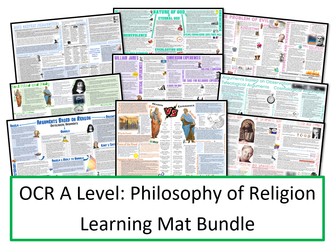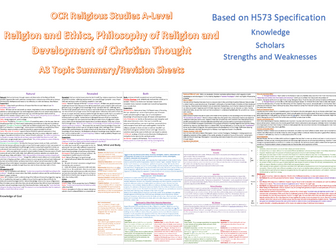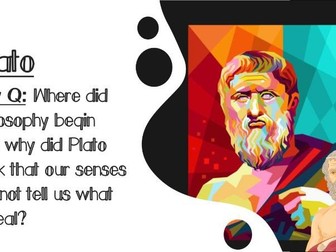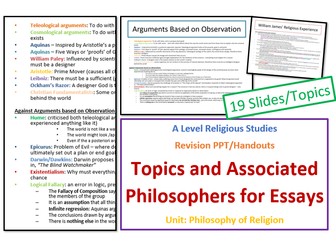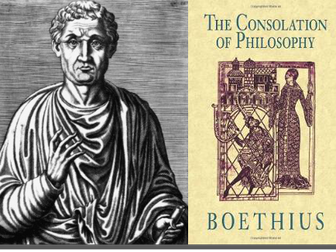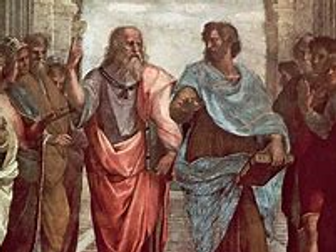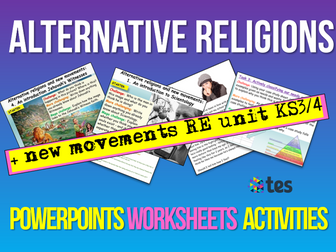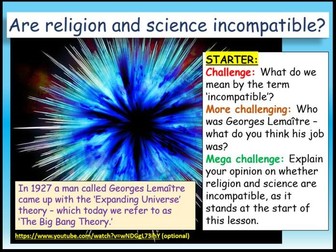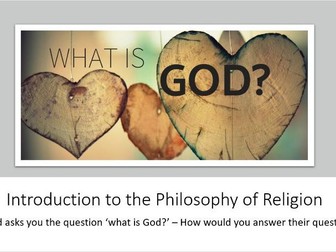Bundle
OCR A Level: Philosophy of Religion Learning Mats
<p>These engaging and colourful learning mats are indented for independent study or revision for the topic of Philosophy of Religion, as part of the OCR AS/A Level specification, although it can be applied across specifications. Each learning mat is downloaded as an A3 Word document and an A4 PDF, for compatibility.</p>
<p>Topics include:</p>
<ol>
<li>Ancient Philosophical Influences</li>
<li>Soul, Mind and Body</li>
<li>Arguments from Observation</li>
<li>Arguments from Reason</li>
<li>Religious experience</li>
<li>Problem of Evil</li>
<li>Nature of God</li>
<li>Religious Language</li>
<li>20th Century Perspectives</li>
</ol>
<p>Created with the OCR RS AS/A Level in mind, though can be applied across specifications and qualifications.</p>
<p>Please give feedback! I am always happy to respond to comments - whether positive or constructive - this will help to improve the quality of my resources in the future and, more importantly, the quality of pupils’ RE/RS education in general - which is what we’re all here for!</p>
